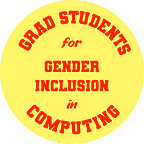Survey of 106 computing grad students highlights COVID-19 stresses, possible solutions
On Friday, March 13th 2020 the Cornell community received an email informing us that in an effort to slow the curve of the global COVID-19 pandemic, classes were suspended as of 5pm that day, and that all undergraduates and professional degree students should leave campus to return home. Other graduate students were allowed to remain local, or leave the Ithaca area on the condition that they do not come back to campus through the end of the semester. The change was rapid, unexpected, extremely stressful, and impacted each of us in a different way.
In the weeks that followed, the U.S. came to terms with life in a pandemic: home gyms became vital, new routines were developed, meetings shifted online. The weekly group meetings among the Graduate Students for Gender Inclusion in Computing (GSGIC) organization quickly started to center on how we are coping, and how the pandemic shapes our lives. After a few weeks, we felt there was a need to understand these concerns at a community level and beyond.
We created a survey that was shared with graduate students in computing departments at Cornell University from May 24th through June 4th, 2020 and received 106 responses. Our findings highlight problems that are not unique to Cornell computing departments but are present across academia. We think that all departments, advisors, professors, and students who are going through this stressful time can benefit from this report.
Primary Findings
- The mental health of students has particularly suffered in this time, as students struggle with feelings of isolation, depression, and/or apprehension and uncertainty about the future.
- Most students have had their productivity suffer, despite feeling that expectations of their research progress (from their advisors, research committees, or the job market) haven’t substantially changed.
- Many students are feeling overwhelmed by the need to constantly consider and evaluate too many things at once. In particular, students highlight that not knowing the format that fall semester will take means they cannot secure housing, have questions about their continued enrollment, and do not know if they will be able to return from abroad or continue being funded.
- With the shift to an online-first community, transparency and communication on behalf of institutions and departments is vital and will require a sustained commitment.
What you can do to help
- If you are an institution, a department, or have agency over policies: The most important thing is to clarify the basics as soon as possible. How/will your students be funded going forward? What is expected of TAs in the fall? Can you guarantee degree milestone extensions, and if not, why is this? What support will be offered to international students? What should grad students do if they contract COVID-19? Any clarity that can be offered will greatly benefit the student population. Policies should also respect the autonomy of grad students — we have many private concerns and responsibilities outside of grad school, just like faculty, and ought to be treated with the same respect.
- If you are an advisor: Talk to your students! Not just once, not just at the beginning, but week after week. Make it clear that you do not expect the same workload as pre-COVID, and support your students as they navigate their worries around the job market, personal safety, funding, and other issues. Share information with your students so they don’t have to make decisions in the dark.
- If you are a professor: Allow all TAs to complete their work remotely, even if not mandated by the university. Understand that shifting a class online is likely to require more work from TAs than before. Be communicative, be flexible with students, and support remote meetings. Think about how you plan to make yourself available to new students interested in joining your lab or working with you.
- If you are a student: Know that you are not alone. Our report includes testimonies of students who are struggling, even though they may put on a brave face in public. Communicate with your advisor; they are likely willing to be flexible during this time, and it’s important to have a clear idea of the work expected from you. Prioritize your mental and physical health, and find ways to socialize despite the circumstances.
Authors
This report was created by the Graduate Students for Gender Inclusion in Computing group at Cornell University. In particular, the authors are: Marianne Aubin Le Quere, Maria Antoniak, Tegan Wilson, Alexa VanHattum, Griffin Berlstein, Elizabeth Ricci, Andrea Cuadra, Sachi Angle, Sharifa Sultana.
